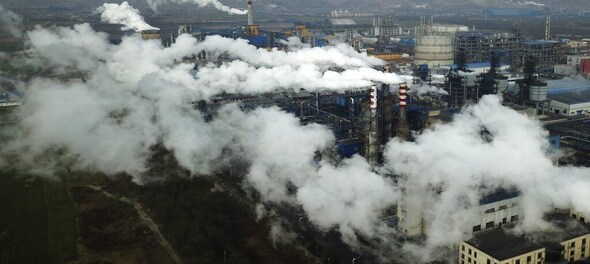
World economies must put a stop to investment in new fossil fuel supply projects immediately to ensure a shift to a net-zero energy system by 2050, the International Energy Agency said on Tuesday. It also stressed the need for massive deployment of clean and efficient energy technologies.
“Net-zero means huge declines in the use of coal, oil and gas. This requires steps such as halting sales of new internal combustion engine passenger cars by 2035 and phasing out all unabated coal and oil power plants by 2040,” the Paris-based intergovernmental organisation said in a special report titled ‘Net-Zero by 2050: a Roadmap for the Global Energy Sector.’
While reiterating that the goal to bring emissions to zero is narrow but still achievable, Fatih Birol, the IEA Executive Director, said, “The scale and speed of the efforts demanded by this critical and formidable goal – our best chance of tackling climate change and limiting global warming to 1.5 °C – make this perhaps the greatest challenge humankind has ever faced.”
The report comes nearly two months after the agency said global carbon dioxide emissions are on the rise again after dropping by 5.8% in 2020 as the COVID-19 pandemic slowed economic activity.
The IEA report, which the autonomous body says is the world’s first comprehensive study of how to transition to a net-zero energy system by mid-century, has pitched for electrification of areas previously dominated by fossil fuels for reducing emissions.
Is electrification always a viable option?
According to the IEA, where electricity cannot easily or economically replace fossil fuels or where limited sustainable bioenergy supplies fail to cope with demand, hydrogen and hydrogen-based fuels will need to fill the gaps. “This includes using hydrogen-based fuels for ships and planes, as well as hydrogen in heavy industries like steel and chemicals,” the report states.
Impact of investment in clean energy?
IEA has estimated that the annual investment in clean energy across the globe needs to more than triple by 2030 to around $4 trillion in order to achieve the target of net zero emissions by 2050. “This will create millions of new jobs, significantly lift global economic growth, and achieve universal access to electricity and clean cooking worldwide by the end of the decade,” the report said.
The special report is designed to inform the high-level negotiations that will take place at the 26th Conference of the Parties (COP26) of the United Nations Climate Change Framework Convention in Glasgow in November, IEA said adding that it was requested as input to the negotiations by the UK government’s COP26 Presidency.
(Edited by : Abhishek Jha)
First Published: May 18, 2021 7:15 PM IST
Check out our in-depth Market Coverage, Business News & get real-time Stock Market Updates on CNBC-TV18. Also, Watch our channels CNBC-TV18, CNBC Awaaz and CNBC Bajar Live on-the-go!


Lok Sabha elections 2024: 28% of candidates contesting in fourth phase are 'crorepatis'
May 9, 2024 4:29 PM
Free poha-jalebi to movie ticket discounts: How cities struggling with 'urban apathy' are luring voters to polling booths
May 9, 2024 3:17 PM

